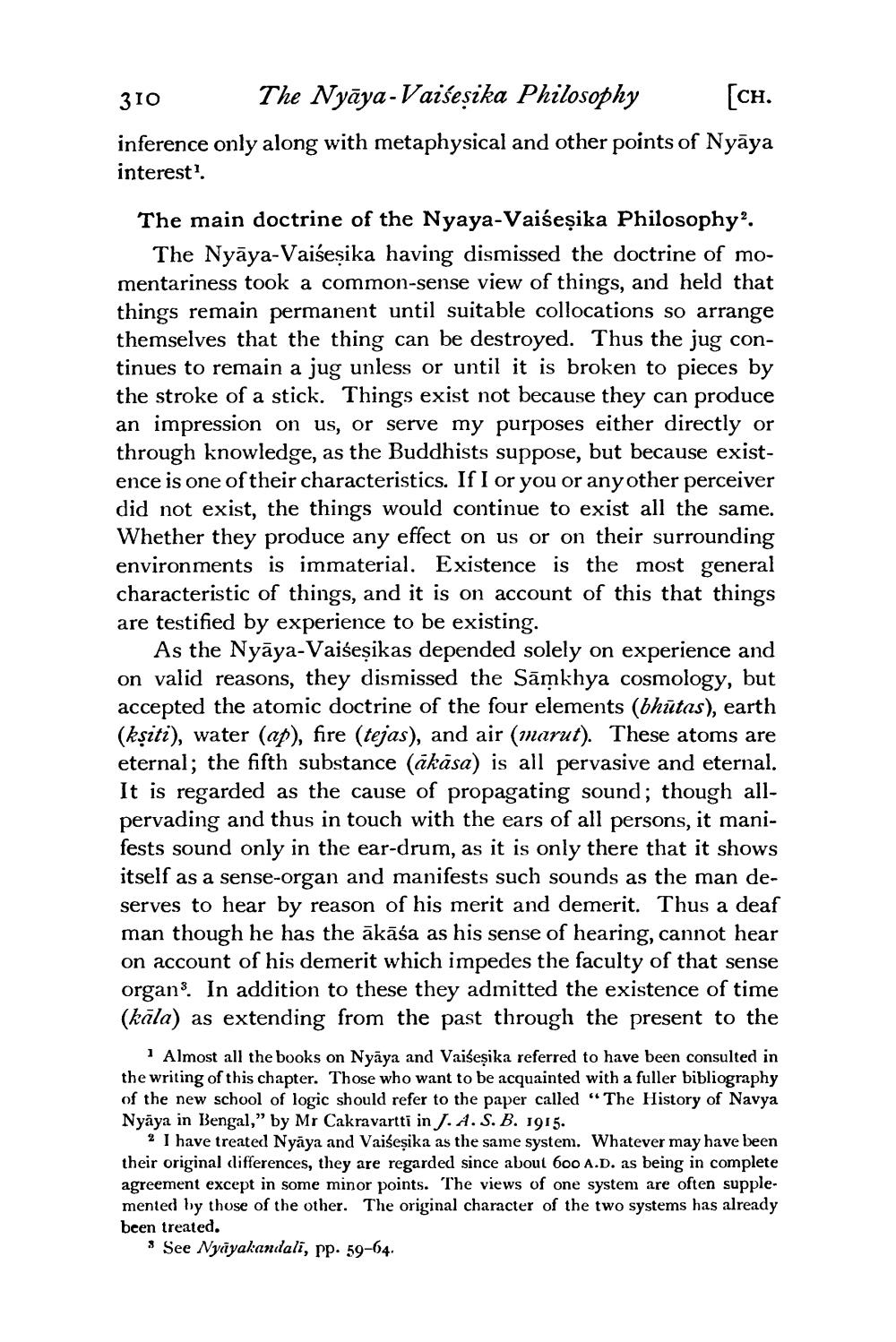________________
310
The Nyāya-Vaiseșika Philosophy [CH. inference only along with metaphysical and other points of Nyāya interest?
The main doctrine of the Nyaya-Vaiseșika Philosophy?.
The Nyāya-Vaiseșika having dismissed the doctrine of momentariness took a common sense view of things, and held that things remain permanent until suitable collocations so arrange themselves that the thing can be destroyed. Thus the jug continues to remain a jug unless or until it is broken to pieces by the stroke of a stick. Things exist not because they can produce an impression on us, or serve my purposes either directly or through knowledge, as the Buddhists suppose, but because existence is one of their characteristics. If I or you or any other perceiver did not exist, the things would continue to exist all the same. Whether they produce any effect on us or on their surrounding environments is immaterial. Existence is the most general characteristic of things, and it is on account of this that things are testified by experience to be existing.
As the Nyāya-Vaisesikas depended solely on experience and on valid reasons, they dismissed the Sāmkhya cosmology, but accepted the atomic doctrine of the four elements (bhūtas), earth (kșiti), water (ap), fire (tejas), and air (marut). These atoms are eternal; the fifth substance (äkāsa) is all pervasive and eternal. It is regarded as the cause of propagating sound; though allpervading and thus in touch with the ears of all persons, it manifests sound only in the ear-drum, as it is only there that it shows itself as a sense-organ and manifests such sounds as the man deserves to hear by reason of his merit and demerit. Thus a deaf man though he has the ākāśa as his sense of hearing, cannot hear on account of his demerit which impedes the faculty of that sense organIn addition to these they admitted the existence of time (kāla) as extending from the past through the present to the
1 Almost all the books on Nyāya and Vaiseșika referred to have been consulted in the writing of this chapter. Those who want to be acquainted with a fuller bibliography of the new school of logic should refer to the paper called “The History of Navya Nyāya in Bengal," by Mr Cakravartti in J.A.S. B. 1915.
2 I have treated Nyāya and Vaiseșika as the same system. Whatever may have been their original differences, they are regarded since about 600 A.D. as being in complete agreement except in some minor points. The views of one system are often supplemented by those of the other. The original character of the two systems has already been treated.
* See Nyayakandali, pp. 59-64.




